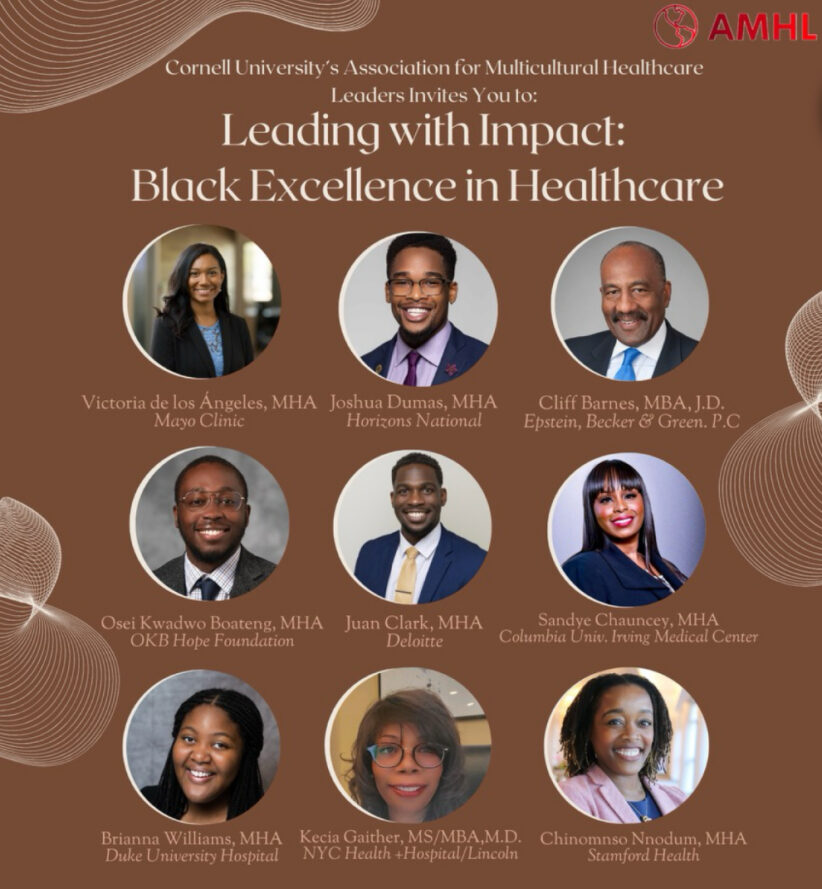By Jada Ingleton
In celebration of Black History Month and the advocacy of marginalized healthcare, Cornell University’s Association of Multicultural Healthcare Leaders (AMHL) partnered with a panel of Black healthcare professionals to share their experiences and methods to succeed in an often predominantly white field.
Hosted virtually on Feb. 19, the event, coined “Leading with Impact: Black Excellence in Healthcare,” served as an avenue for diverse healthcare professionals to educate and uplift aspiring affiliates.
The two-session panel was presented by AMHL – a graduate-level organization of students with a shared mission to elevate a diverse future generation of healthcare leaders.
It consisted of nine guest speakers, ranging from fellows to master administrators.
The event featured many perspectives on the importance of diversity and how to navigate professionalism in an underrepresented industry.
“Events like this provide an opportunity to engage in meaningful dialogue, advocacy, and action towards achieving greater equity and justice in healthcare. We not only recognize the invaluable contributions of Black professionals in the field but also amplify their voices and stories,” AMHL Vice President and Master in Healthcare Administration (MHA) candidate Tydarius Moxie said.
Many of the panelists have said they often find themselves being the only person of color in the room advocating for these particular groups.
Professionals delved into many industry barriers, such as systemic racism, patient access, and the continued fight to decrease Black maternal mortality rates. Yet, one of the most sought-after segments was managing identity in less-than-diverse spaces.
“Where I’ve seen the greatest impact that I’ve been able to make in the DEI spaces is doing my best to be my absolute most authentic self in the workplace. That in itself can inspire other folks who look like you,” Joshua Dumas, associate board representative of the Horizons National board of directors, said.
Chinomnso Nnodum of Stanford Health spoke about the importance of recognizing your value as a Black professional and considered the evident decline of representation in senior-level positions to be one of the main factors in the need for readjustment.
She says the necessity starts with networking and mentorship, explaining that it’s not just about “having people that have your back” but also ” saying your name in the room.”
For Dr. Kecia Gaither, director of perinatal services and maternal-fetal medicine at Lincoln Medical and Mental Health Center, NYC Health, the first stop to an increase in multiethnic representation starts with grade school.
“There’s a pathway that should occur to lead young people [of color] to careers in medicine. There are various twists and turns…[they] need to be aware of. It should be recognized that a lot of the time, the gatekeepers [of medical school] don’t necessarily look like you, but if you’ve been mentored…that could give you a greater edge,” Gaither said.




